Featured Blog Posts

Concrete Sidewalk Repair: Restore Safety & Curb Appeal
Cracked, uneven, or sunken sidewalks are not only unsightly but also hazardous. If you’re dealing with sidewalk damage in Long Island, Brooklyn, Queens, or the Bronx, concrete sidewalk repair is essential for maintaining safety and compliance with local regulations. Whether it’s due to weather conditions, tree roots, or soil
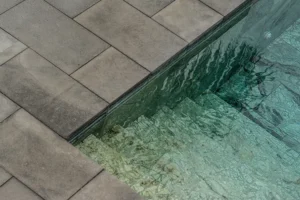
Concrete Pool Deck Repair: Restore Safety & Beauty to Your Poolside
A well-maintained concrete pool deck enhances the beauty of your backyard and provides a safe, comfortable space for relaxation. However, over time, cracks, sinking areas, and surface wear can make your pool deck look unattractive and even create safety hazards. If you’re in Long Island, Brooklyn, Queens, or the
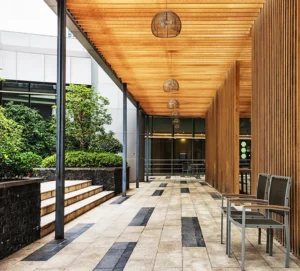
Concrete Porch Repair: A Complete Guide for Long Island, Brooklyn, Queens, and the Bronx
A concrete porch adds charm, durability, and functionality to any home. However, over time, exposure to weather, moisture, and heavy use can lead to cracks, sinking, and deterioration. If you’re a homeowner in Long Island, Brooklyn, Queens, or the Bronx, addressing these issues promptly can prevent further damage and
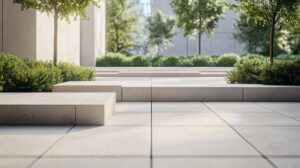
Concrete Patio Repair: Restore and Enhance Your Outdoor Space
A concrete patio adds value to any home, providing a durable and stylish outdoor living area. However, over time, it can develop cracks, uneven surfaces, or discoloration due to weather exposure and regular wear and tear. If you’re looking for solutions, this guide will cover everything you need to
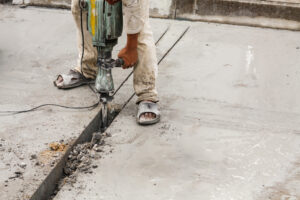
Apartment Concrete Repair: A Comprehensive Guide to Restoring Structural Integrity
Apartment buildings experience wear and tear over time, and one of the most common structural issues is deteriorating concrete. Whether it’s cracked floors, uneven surfaces, or deteriorating balconies, addressing concrete damage is essential to maintain the building’s safety, functionality, and aesthetics. In this guide, we’ll explore the various aspects
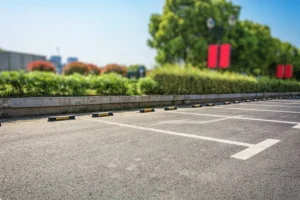
Concrete Parking Lot Repair: Ensuring Safety & Longevity for Your Property
A well-maintained parking lot is crucial for any commercial or residential property in Long Island, Brooklyn, and Queens. Over time, cracks, potholes, and surface damage can compromise both safety and curb appeal. If left untreated, minor damage can escalate into costly repairs. This blog explores everything you need to
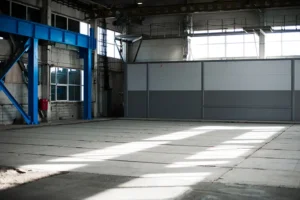
Warehouse Concrete Floor Repair: A Complete Guide
A well-maintained warehouse floor is crucial for efficiency, safety, and longevity. Cracks, uneven surfaces, and spalling can lead to safety hazards, equipment damage, and operational downtime. This guide explores warehouse concrete floor repair, highlighting the best methods, benefits, and why timely intervention is essential. Common Issues with Warehouse Concrete
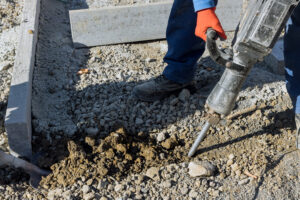
Post-Tensioning Repair: Restoring Structural Integrity in Long Island, Brooklyn, and Queens
Post-tensioning is a widely used technique in modern concrete construction, offering enhanced strength and durability to structures such as bridges, parking garages, and commercial buildings. However, over time, post-tensioned concrete can deteriorate due to factors like moisture intrusion, corrosion, and improper installation. When these issues arise, post-tensioning repair becomes
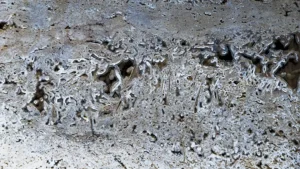
Concrete Corrosion: Causes, Risks, and Solutions for Long Island, Brooklyn, and Queens
Concrete is one of the most durable and widely used construction materials. However, over time, it can deteriorate due to a phenomenon called concrete corrosion. This issue is particularly prevalent in regions like Long Island, Brooklyn, and Queens, where environmental and human factors accelerate the degradation process. Understanding concrete
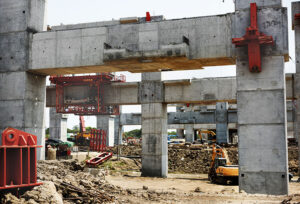
Commercial Concrete Lifting: The Smart Solution for Businesses in Long Island, Brooklyn, and Queens
Why Commercial Concrete Lifting Matters Uneven concrete surfaces are more than just an eyesore; they pose significant safety hazards and liability risks for businesses. Whether it’s a sidewalk, parking lot, or warehouse floor, sunken or cracked concrete can lead to accidents, disrupt operations, and result in costly repairs if
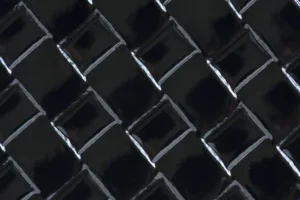
Carbon Fiber Reinforced Concrete: The Future of Durable and Strong Structures
Concrete is one of the most widely used construction materials, but it has its limitations, including susceptibility to cracks, shrinkage, and deterioration over time. Fortunately, carbon fiber reinforced concrete is revolutionizing the industry by offering enhanced durability, strength, and longevity. For property owners and contractors in Long Island, Brooklyn,
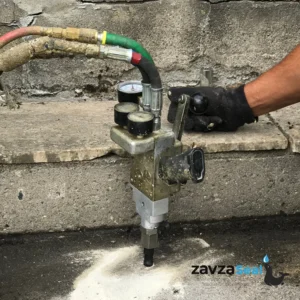
Commercial Mudjacking: The Best Solution for Uneven Concrete in Long Island, Brooklyn, and Queens
Uneven concrete surfaces in commercial properties are more than just an eyesore—they pose safety risks, decrease property value, and can lead to costly structural damage. If you’re a business owner or property manager in Long Island, Brooklyn, or Queens, you need a cost-effective, long-lasting solution. That’s where commercial mudjacking
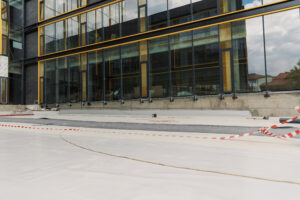
Commercial Concrete Leveling: The Ultimate Solution for Uneven Surfaces
Why Commercial Concrete Leveling Matters in Long Island, Brooklyn, and Queens Commercial properties in Long Island, Brooklyn, and Queens rely on strong, even concrete surfaces for safety, aesthetics, and functionality. Whether it’s a warehouse floor, a retail parking lot, or a loading dock, uneven concrete can cause significant problems,
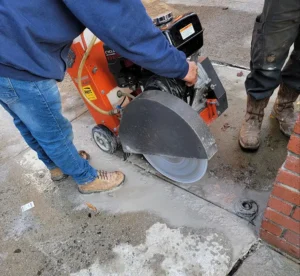
Cutting Concrete the Right Way: A DIY Guide for Homeowners
Concrete is one of the most durable materials in construction, but sometimes you need to cut through it for repairs, remodeling, or landscaping projects. Whether you’re cutting a driveway slab, resizing concrete pavers, or working with concrete boards, using the right tools and techniques ensures a clean and safe
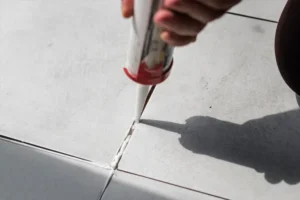
The Best Caulk for Concrete: A Guide to Self-Leveling Concrete Caulk for Long-Lasting Repairs
Concrete surfaces, whether driveways, sidewalks, patios, or foundations, naturally develop cracks over time due to weather changes, ground movement, and regular wear and tear. Without proper sealing, these cracks can allow water infiltration, leading to further deterioration, mold growth, and costly structural issues. That’s where caulk for concrete comes
Get a Free Estimate
Get a free estimate for our top-tier mudjacking services today, and take the first step towards a safer,
more stable, and beautifully restored concrete landscape.
CONTACT US
We are Just a Phone Call Away
Transform Your Uneven Concrete Today! Get a Free Quote for Expert Mudjacking Services.